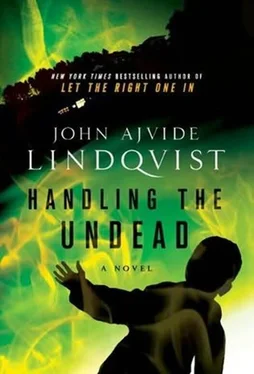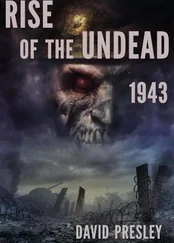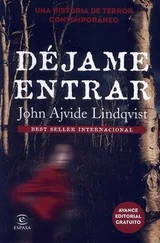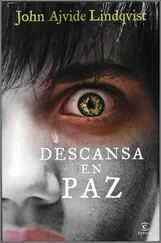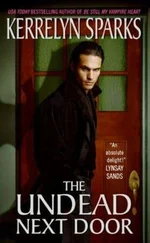'Yes.'
Now everything was quiet on Benke's end. He had probably slipped into an empty office.
'OK, Gustav. I don't know what to say.'
'You don't have to say anything. But I want to know what they are doing. If I'm doing the right thing.'
'They're collecting them, taking them all to Danderyd. They've started opening graves all over. The armed forces have been called in. They're citing some regulation about mass epidemics. No one knows anything, really. I think…' Benke paused. 'I don't know. But I have grand kids too, as you know. Maybe you are doing the right thing. There's a general feeling… of panic.'
'Does anyone know why this is happening?'
'No. And now, Gustav… to my other point.'
'Benke, I can't. I'm completely done in.'
Benke breathed into the receiver; Mahler sensed the effort it cost him to remain calm, not to start haranguing him. 'Do you have the photos?' he asked.
'Yes, but…'
'In that case,' Benke said, 'they're the only independent photos available from the inside. And you are the only journalist who managed to get in before they closed. Gustav… with all due respect for your situation-which I cannot even imagine- I am trying to put together a newspaper. Right now I'm talking to my best writer who is sitting on incomparably the best material. You, on the other hand, can probably imagine my situation.'
'Benke, you have to understand that…'
'I understand. But please, please, please Gustav, can't you just… anything? The pictures, a little text in the present tense, straight on? Please? And, if nothing else, then the pies? Just that?'
If Mahler had been able to laugh, he would have. Now all that came out of him was a groan. During the fifteen years that they had worked together he could not recall a single instance when Benke had actually begged for something. The word 'please' with a question mark after it had not been in his vocabulary.
'I'll try,' he said.
As if this was what he had expected the whole time, Benke said,
'I'll hold the centre spot. Forty-five minutes.'
'Jesus Christ, Benke…'
'Yes. And thanks, Gustav. Thanks. Get cracking now.'
They ended the call. Mahler glanced at Elias who had not moved. Walked over and placed a finger in his hand, which closed. He wanted to sit down next to him, fall asleep with his finger in his hand.
Forty-five minutes…
Insanity. Why had he agreed?
Because he couldn't help himself: he had been a reporter his whole adult life, and he knew what Benke had said was true. He was in possession of potentially the best material anyone had, of the biggest story… ever. He couldn't not do it. In spite of everything.
He sat down at the computer, took the film out from inside his head, and his fingers started to move across the keyboard.
The elevator starts with a jerk. I can hear screams through the thick concrete. The morgue level comes into view through the door glass…
Overview
00.22:The Minister of Health and Social Affairs arrives at the department. Under his supervision, a provisional command unit is formed consisting of representatives of various departments and the police, as well as eminent physicians from a number of disciplines.
A conference room at the department has been set up as a temporary command centre. It will quickly come to be known as the Dead Room.
00.25:The Prime Minister is informed of the situation, in Cape Town. The situation is deemed to be so extraordinary that a planned meeting with Nelson Mandela the next day is cancelled and the state plane is made ready for take-off. The flight takes eleven hours.
00.42:The first reliable report about awakenings at cemeteries reaches the Dead Room. The calculations have already been made. It is a matter of around 980 people. The police report that they do not have the resources to manage the exhumations.
00·45:Public pressure for a press statement from the Dead Room increases. A certain confusion about terminology abounds. After a brief meeting the term 'reliving' is unanimously adopted to refer to the awakened dead.
00.50:The task of exhumation is transferred to the military.
As collaboration between the police and the armed forces is forbidden by law, no military representatives can be included in the command unit. The military is given the same authority as in a state of emergency and has to address the matter as best they can.
01.00:Danderyd reports that 430 reliving have now been admitted to the Clinic for Infectious Diseases and work is underway to clear the wards in order to make more room. Only two ambulances at each hospital have been set aside for emergency dispatches, the rest are being used for transportation. Additional assistance is requested.
01.03:There is a discussion in the Dead Room about allowing funeral homes to help transport their former clients. It is decided, however, that this may be perceived as inappropriate, and instead all available taxi cabs are called in to transport patients from Danderyd to other hospitals.
01.05:A statement issued to the press by General J ohan Stenberg-who has been appointed head of the military emergency action-reaches the Dead Room. 'At present we view the corpses largely as a logistical problem,' the general has apparently said. A press secretary from the department agrees to take on the task of informing the general of the correct terminology.
01.08:Two emergency technicians and a chaplain are threatened with a rifle when they try to pick up a reliving woman in Tyreso. Police are dispatched to the scene.
01.10:CNN becomes the first foreign television station to carry reports on the events in Stockholm. Their images are limited to the chaos outside Danderyd and in the report, those patients who are being moved to other hospitals are erroneously referred to as 'the living dead'.
01.14:Pressure on the Dead Room from foreign media increases after the CNN report. A media spokesperson from the Foreign Ministry is given the task of fielding the telephone calls.
01.17:The first military exhumation division sets off, comprising mine-clearing experts as well as personnel with UN experience opening mass graves in Bosnia. While waiting for further similar groups to be dispatched, they set off to the Stockholm Forest Cemetery in order to start there.
01.21:The man in Tyreso who had refused to hand over his reliving wife opens fire at the police. No one is injured.
O1. 23:The Minister of Health and Social Affairs decides in consultation with judicial experts to apply to this situation those laws relating to mass epidemics, which affords the police corresponding interim authority before the results of the medical analysis. A plea is dispatched to the Medical Examiner to hurry up the work.
01.24:The police in Tyreso are given permission to use teargas, but decide not to since the armed man is elderly and may be seriously injured.
A police negotiator establishes telephone contact with the man as he is making his way to the scene.
01.27:An initial medical report indicates that the reliving apparently do not employ respiratory or circulatory organs. Hasty cell tests indicate, however, that some kind of metabolic function may be present. According to the specialist in internal medicine who is spear-heading the investigation, 'Everything is completely impossible, but we are doing what we can.'
01.3°:At Danderyd they have now admitted 640 reliving and ask for additional reinforcements from other hospitals. For unknown reasons, conflicts constantly erupt among members of the staff, which makes cooperation more difficult.
Читать дальше
